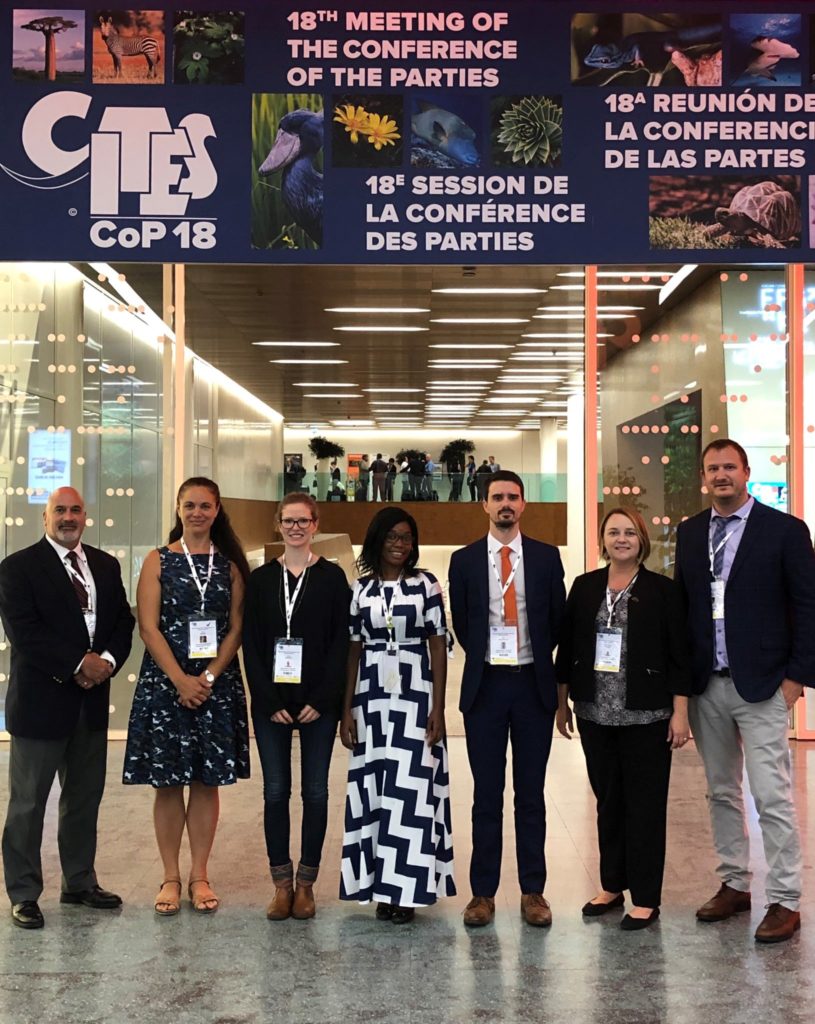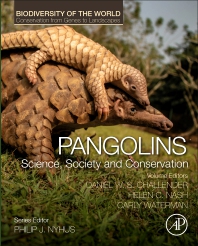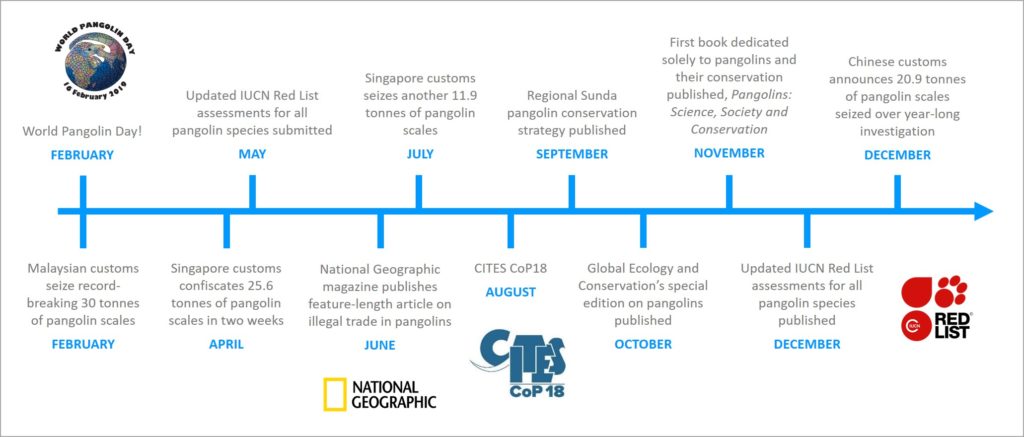In our first blog of the year, we take a look back at some of the key moments for pangolin conservation in 2019, before looking ahead at what is to come in 2020.
From reports of major seizures of scales in mainstream news outlets to feature length articles in the National Geographic magazine, pangolins certainly received a lot of attention in 2019. The important work of our members continued; protecting pangolins at key sites in Africa and Asia, working to combat illegal trade and publishing new research on the species. Key decisions were also adopted at CITES CoP18 which supports this work, and should help governments enforce the international ban on commercial trade of pangolins, thus helping protect wild populations.
A celebration of pangolins
World Pangolin Day is held every year on the third Saturday in February, giving our members the chance to come together to celebrate pangolins and the people that are working to save them. They do this by hosting events and sharing stories and photos on social media aimed at raising awareness of pangolins, the threats they face and what people can do to help them. Since the first World Pangolin Day in 2012, it has grown to become a significant date in the calendar with events and activities now taking place online and in person across the world. Many of our members are already gearing up for World Pangolin Day 2020!
Pangolins in the news
News of major seizures of both Asian and African pangolins and their derivatives characterised the first half of 2019. Malaysian customs seized a record breaking 28.9 tonnes of frozen pangolins in February. Following this, Singapore had two major seizures, totalling 25.6 tonnes of scales, within days of each other in April, with another 11.9 tonnes in July. China announced in December that customs officials had confiscated 20.9 tonnes of scales over a year-long investigation. While these confiscations come too late for the pangolins involved in the trafficking; such seizures may indicate that detection and interception are improving. Confiscations contribe to the disruption of the criminal networks involved and increase the risks involved in the illegal trafficking of pangolin products, which will ultimately help reduce the illegal trade and protect wild populations.

Representatives of the IUCN SSC Pangolin Specialist Group (PSG) and guests at CITES CoP18. Photo credit: Amelia Meier
Pangolins at CITES CoP18
Pangolins were on the agenda at the CITES CoP18 meeting held in Geneva in August. Here, world governments re-affirmed their commitment to protecting pangolins, monitoring illegal trade and to devising conservation solutions for the species. Representatives of the Pangolin Specialist Group provided technical guidance to CITES Parties during the meeting, submitted information documents on ecological monitoring of pangolin populations, and delivered a side event on monitoring populations to share the findings of recent work with governments and observers. The CoP adopted formal Decisions which should aid implementation of the international ban on commercial trade of pangolins. Read more about the Decisions and their implications here.
Mapping conservation action for the Sunda pangolin
A regional conservation strategy for the Sunda pangolin, native to Southeast Asia, was launched in September, which emanates from a collaborative workshop held in 2017 involving key conservation organisations, pangolin experts and government agencies within the Sunda pangolin range states. The Sunda pangolin is found across Southeast Asia and is Critically Endangered according to the IUCN Red List of Threatened Species. The strategy will help to guide conservation efforts and should inform stakeholders ranging from donors to practitioners on what needs to be done most imminently to conserve this species. You can download the strategy here.

‘Pangolins: Science, Society and Conservation’ was published in December 2019
Generating knowledge on pangolins
In late 2019, a special issue of the journal Global Ecology and Conservation was published online, which focuses on pangolins, and their trade, ecology and conservation. The articles focus on topics including illegal trade, monitoring pangolin populations, ecology, and commercial captive breeding. The papers featured in the special edition can be freely accessed online.
This was followed by publication of the first book dedicated solely to pangolins and their conservation, ‘Pangolins: Science, Society and Conservation’, which was published in November. The book brings together more than 130 authors from around the world and in 39 chapters presents the latest knowledge on pangolin evolution and taxonomy, use and trade, ecology and biology, and presents a range of conservation solutions. Edited by Pangolin SG Chair, Dan Challender, Programme Officer, Carly Waterman, and Vice-Chair, Helen Nash, it contains contributions from many of our members and is a must read for supports of pangolin conservation
Updates to the IUCN Red List assessments for pangolins
Finally, the year ended with updates to the IUCN Red List assessments for all eight pangolin species. The updates confirmed all pangolin species remain threatened with extinction and resulted in category changes for three pangolin species; based on newly available information on the threats from overexploitation, including its inferred impact on populations, and habitat loss. The white-bellied pangolin and giant pangolin, both found across Africa, moved from Vulnerable to Endangered, and the Philippine pangolin was categorised as Critically Endangered. Find out more about the Red List and what the category changes mean here.
Looking ahead to 2020
This year is set to be another busy one for pangolin conservationists. The new decade will begin with World Pangolin Day on Saturday 15 February 2020, which also marks the eighth birthday of the Pangolin Specialist Group. The Pangolin SG Advisory Committee will be holding its first in-person meeting in early 2020 in order to discuss and begin to develop the future strategy of the Specialist Group. The Pangolin SG will also be represented at the IUCN World Conservation Congress held in Marseille from 11-19 June 2020 where we will be raising the profile of pangolins and their conservation. The African Pangolin Working Group, members of the Pangolin SG, will be holding its 2nd International Pangolin Conference from 28 September – 01 October in Kruger National Park, South Africa. Throughout the year, inter-sessional work focusing on pangolins will likely get started and further articles will be added to the Global Ecology and Conservation special issue on pangolins.
We look forward to getting started on this work, and more, to protect pangolins in 2020 and ahead.


